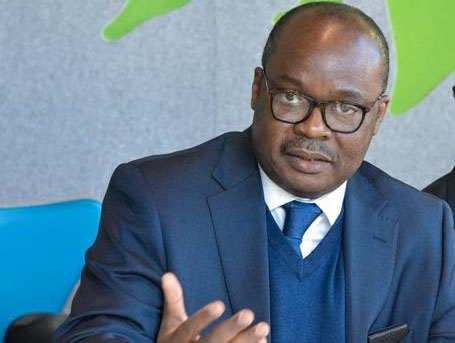Dr. Ernest Addison
Government will not be able to issue any eurobond on the international market this year, Dr. Ernest Addison, Governor of the Bank of Ghana, has said.
Speaking to journalists yesterday in Accra, the Governor explained, “As you are aware, the cedi came under pressure sometime in February and the reasons for that are varied; part of it refers to the fact that we have lost assets to the capital markets, and therefore, we are not going to be able to issue a bond this year, which has immediate implications for the availability of foreign exchange, but as you said a few moments ago…, the government has announced its intention to raise $2 billion from some syndicated arrangements with banks.”
According to him, if the aforementioned plan by government should proceed, that should help improve the supply of foreign exchange and the economy as a whole while also impacting positively on the strength of the Cedi.
In terms of what the Bank of Ghana has been doing, he stated, “As you are aware, we have a fortnightly foreign exchange auction where we make foreign exchange available to the system and in the last four weeks, we have been making a special allocation to the Oil Marketing Companies (OMCs) and the Liquified Natural Gas (LNG) companies as well as the cement producing companies, and I can tell you that as at last week, we had completely cleared the pipeline demand for foreign exchange from these OMCs.
So what we are saying in terms of tweaking the framework for the OMCs is already done …. I think that if you talk to the OMCs they will tell you that the Bank of Ghana has been making foreign exchange available to them.”
“In addition to that, we have made foreign exchange available to the market promptly. And we think all of that should help in terms of mitigating the pace of depreciation of the Cedi.
“Now these are all short-term immediate measures that we are taking to address the matter, but we also, this morning, have announced an increase in the policy rate. That action, in itself, should make our domestic assets more attractive and should improve the incentive for investing in Cedi denominated assets.
“So the significant policy rate adjustments that you sa are also aimed at strengthening the Cedi. Some of the medium to longer term actions you mentioned like the domestic gold purchasing programme.
These are things that will even pad up the level of fforeign reserves in the medium term. We’ve made quiet a progress. I think we have bought over 600 kilograms of dowry gold, but this has to be refined to very high standards before these will be qualified as a reserve asset. And we are in the process of fulfilling all the due diligence requirements that the refineries, the LBMAs, certified refineries in the world look out for.
“We are hoping, we are quite sure that in the next month or two, we will be able to export the dowry gold that we have and once that is refined and it becomes part of our gross reserves, issues that we also discussed at this weekend’s retreat in the medium term, is also to look at some of the retention agreements that we have with the oil trading companies, etc.
“These are really medium to longer term issues and should help improve the foreign exchange earning capacity of the economy as a whole. So yes, we are quite confident that these measures will help to stabilise the Cedi,” he noted.
BY Samuel Boadi

